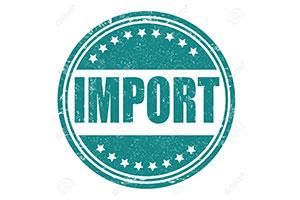Thanks to the summer blockbuster Batman v. Superman: Dawn of Justice, millions of people were unexpectedly introduced to the wonky trade term “import license.�
Why? Because Lex Luther needed the government-issued license to import a chunk of kryptonite that was found in the Indian Ocean in order to destroy his arch-nemesis, of course.
Sure, it is a little farfetched to think that the fate of our beloved red-caped superhero – and the world as we know it – could hinge on Lex Luther’s ability to cut red tape. But the storyline seemed to resonate with people enough to even spur blog posts by trade lawyers opining on whether such a license would be needed if Superman were real.
Spoiler alert: lawyers have varying opinions, but most would probably agree that import licenses aren’t quite so dramatic in the real word.
In case you missed this educational film, an import license is a document issued by a government authorizing the importation of certain goods into its territory.
A government may need to do this to help manage a quota or to keep track of imported products that may pose a hazard or need to meet certain standards.
Sounds innocent enough. Unfortunately, such licenses can actually operate as a non-tariff barrier to trade if they are discriminatory or issued in a non-transparent way that gives domestic producers an advantage. Essentially, a country can block its competitors with revolving regulations and a mountain of paperwork and bureaucracy.
To help prevent this from happening, participants of the World Trade Organization (WTO) formed the “Agreement on Import Licensing Procedures,� which set forth rules and stated that import licensing should be simple, transparent and predictable.
The agreement required that governments publish sufficient information for traders to know how and why licenses are granted, and it required that the licenses be issued expeditiously – usually 30 to 60 days. It even established criteria for granting licenses automatically in many cases to further speed the process and ensure minimal trade disruption.
While the process has largely been a success and import licenses aren’t as prevalent as before, there are still instances where countries don’t play by the rules and use the system to erect trade barriers.
The U.S. Trade Representative’s (USTR) 2016 National Trade Estimate Report on Foreign Trade Barriers highlights numerous occurrences of import licensing.
In Argentina, for example, USTR noted that licenses are required for 1,200 products that the nation considers sensitive. These barriers remain in place, even though the United States – along with the European Union and Japan – won a WTO court case challenging a component of the Argentine import licensing structure known as “The Advance Sworn Affidavit on Imports.� This program required all imports to receive advance approval by the government, and according to the USTR, was used by Argentina “to limit the volume or value of imports, extract commitments from importers to export goods from Argentina, increase investments in Argentina, increase the use of local content and refrain from repatriating profits.�
Unfortunately, instances like this aren’t isolated to Argentina. Take Indonesia, which has extensive licensing requirements on agricultural products.
The central government is trying to make the country food self-sufficent and support the domestic corn industry. Since 2012, only end-users have been able to import corn and only then after a onerous government recommendation that imports are necessary and justified.
Now, the central government has taken complete control of all corn imports through the central trading desk, BULOG. It appears BULOG wants to import less than 1 million metric ton this year, down from 3 million tons last year. Since corn makes up the dominant portion of energy in Indonesian feed rations, this has led to an increased demand for corn substitutes like feed wheat. To that end, reports have indicated the government’s next step will be to dampen feed wheat imports.
When you hear stories like this, it’s not surprising that there have been 45 cases brought before the WTO claiming import licensing abuse. The United States has also filed against Indonesia, the Philippines, Turkey, Korea, Brazil, India, Venezuela and the European Union for blocking products that range from rice to bananas, beef, pork and poultry.
The cases themselves can be highly technical, costly and time consuming to try, with many of America’s pending cases now more than 10 years old.
So justice is rarely dealt as swiftly as it is by superheroes on the silver screen. But the WTO system in place to correct these challenges can only work for America if our country maintains its position as a leader in international trade and stays engaged in global negotiations.


